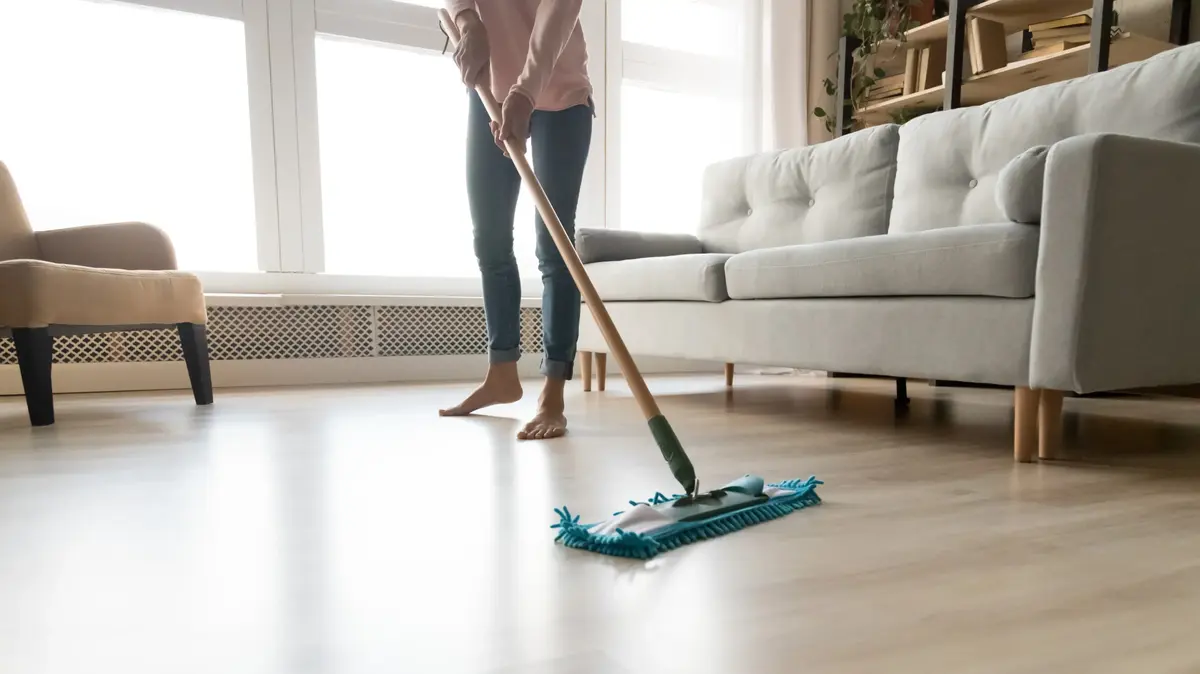Icon: enlarge
Photo: nito / stock.adobe.com / Montage: c't Fotografie / Heise
It's one of those things with camera care: where some people have long been dreadful when it comes to dirt, others postpone spring cleaning to the next winter.
But since the coronavirus has got us under control, more and more photographers have been asking themselves: What hygiene rules do I have to observe when taking photos in the presence of people or lending my camera to others?
And how should I clean or even disinfect my camera after use?
We asked specialists - including Canon Professional Service (CPS), which is responsible for the repair and cleaning of Canon photo and film cameras.
When asked what agents the CPS uses to clean and disinfect cameras, the answer was: "We use a mixture of 70 percent to 80 percent diluted ethanol or isopropanol alcohol. In addition, all technical service staff are wearing gloves and mouth and eye protection fitted."
Hygiene was taken very seriously at Canon even before Corona.
With the spreading pandemic, this aspect has come even more into focus.
To prevent the spread of the coronavirus, the Canon service department specifically recommends disinfecting with alcohol, especially camera parts that are "touched frequently, such as camera grips or lenses".
The application should be done with a microfiber cloth.
In contrast to spray mist solutions, in which the alcohol can reach sensitive areas - such as the sensor - the disinfectant can be dosed more specifically and safely in this way.
However, according to the experts, these measures are explicitly recommended to prevent virus infections - but not as a cleaning method for product care.
About other methods, such as the irradiation of technical devices circulating in the network, for example by means of UV-C light, one "unfortunately has no knowledge and therefore cannot evaluate other alternatives".
High proof against viruses
Icon: enlarge
Hygiene expert Ralf-Peter Vonberg recommends alcoholic disinfectants for camera disinfection
Photo: private / Heise
These practical procedures coincide with the findings of scientists, as Ralf-Peter Vonberg explains in an interview with "c't Photography".
The specialist for microbiology, virology and infection epidemiology as well as for hygiene and environmental medicine at the Institute for Medical Microbiology and Hospital Hygiene at the Medical University of Hanover has dealt with his team, among other things, with the question of how devices such as tablets, which are used in hospitals for documentation, safely disinfected.
In a nutshell, the findings are as follows: Alcohol works reliably and is the most practicable and least burdensome means in everyday life.
Alcoholic disinfectants are offered in various concentrations, most often as around 65% by volume hand disinfectants, "says Vonberg." That kills almost all bacteria and a large part of the viruses. "When asked what that means with regard to the coronavirus, he replies Hygienist from Hanover: "What matters is whether the viruses have a shell or not.
Enveloped viruses, such as the coronavirus, can be inactivated very well with the alcohol solutions that are available everywhere, whereas for viruses without an envelope, alcohol solutions with around 95% by volume are indicated. "
Whether ethanol or isopropanol - both are usually available in pharmacies, but also drugstores - is irrelevant for the result.
In addition to the application of liquid alcohol, the commercially available alcohol-soaked cloths also worked, provided that the surface was adequately wetted.
Apply, let it evaporate, done!
Viruses can of course also be killed by other means, such as formaldehyde, which safely deactivates viruses.
From the hospital hygienist's point of view, there is nothing to support its use: "With formaldehyde, contact with the skin must be avoided and the vapors are considered carcinogenic," says Vonberg.
Secret weapon UV-C light
Icon: enlarge
Prototype of a cell phone disinfection system that researchers at the Fraunhofer Institute have developed, inside UVC LEDs (light-emitting diodes that work with ultraviolet light) are used
Photo: Thomas Westerhoff, Fraunhofer IOSB-AST / Heise
When asked about the effectiveness of UV-C light as a virus inactivator, the hygiene researcher says: "We tested a commercially available lamp specifically for this purpose. We were able to determine that it actually emitted UV radiation and not just violet light and killed bacteria within seconds . I would therefore suspect that these lamps also inactivate viruses, but they are not explicitly designed for medical use and so far not a reliable alternative. "
In addition, incorrect use can result in skin damage or flashing (damage to the surface of the cornea by UV rays).
In addition, it cannot be ruled out that the rays may permanently attack plastics, such as those on housing panels.
That brings us back to the beginning: Alcohol is not only a "solvent" in the chemical sense, but also a "solution" in colloquial terms - and when it comes to Covid-19 disinfection of technical devices, it is the one with the fewest disadvantages.
Viruses that dry out overnight
The question remains completely different: How high is the risk of contracting a corona infection via contact surfaces such as a camera housing, anyway?
"I only expect a camera to be contaminated if it is within the scattering radius of an infected person. The recommended one and a half meters distance is usually sufficient. Unless, for example, you are photographing a singing choir," replies the hygienist.
In any case, this only poses a problem for third parties if the person concerned does not wash their hands.
Some studies indicated that the viruses adhering to surfaces are no longer infectious after one night because they dried out.
Vonberg says: "If you adhere to the usual hygiene rules, this potential transmission path is very unlikely. Because of the aerosols - the finest suspended particles to which the virus can adhere - or droplets, an infection in the line at the bakery is much more likely."
This also applies to inadequately ventilated photo studios, especially if there are several people in the room who are not wearing any or no reliable masks.
Icon: The mirror







